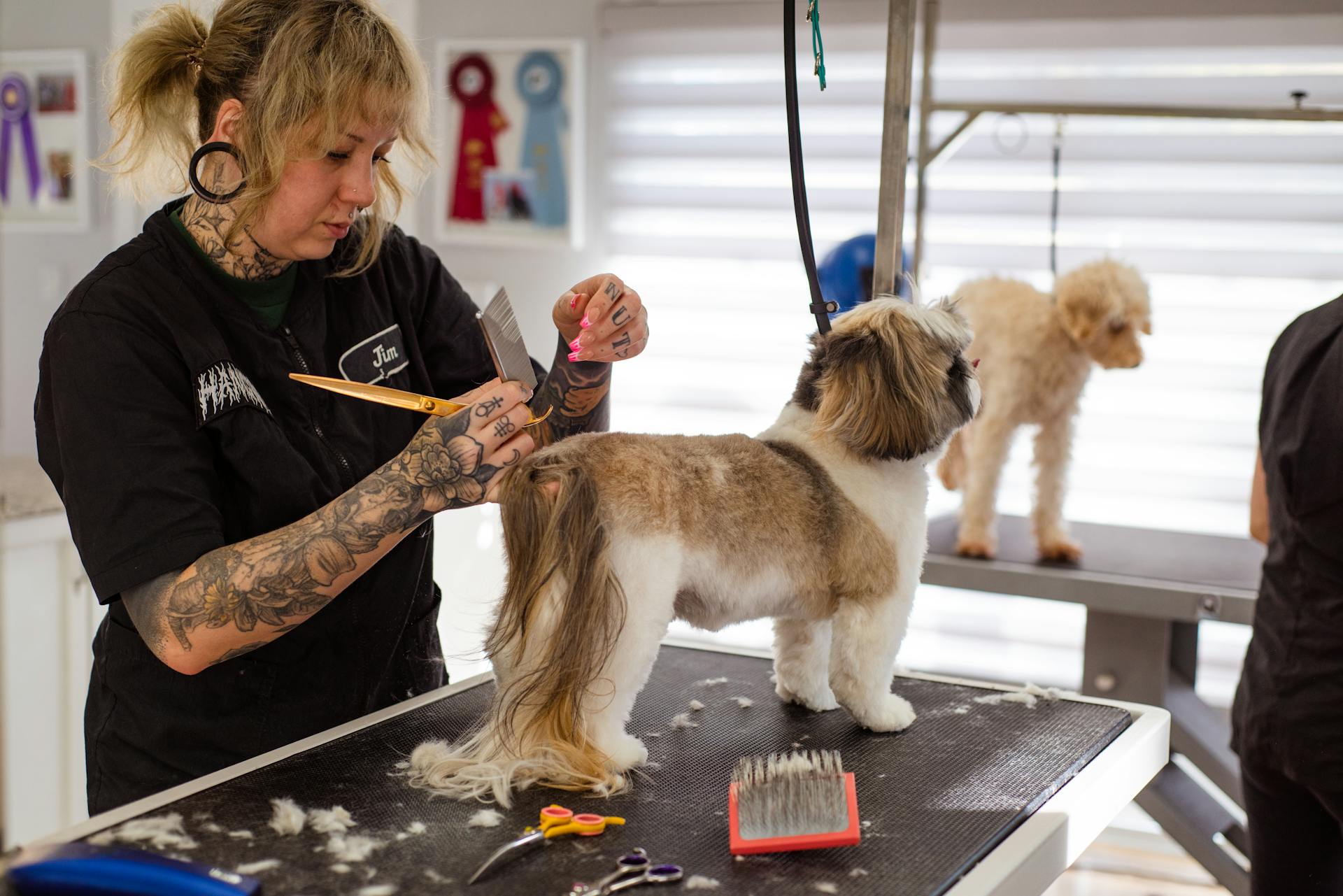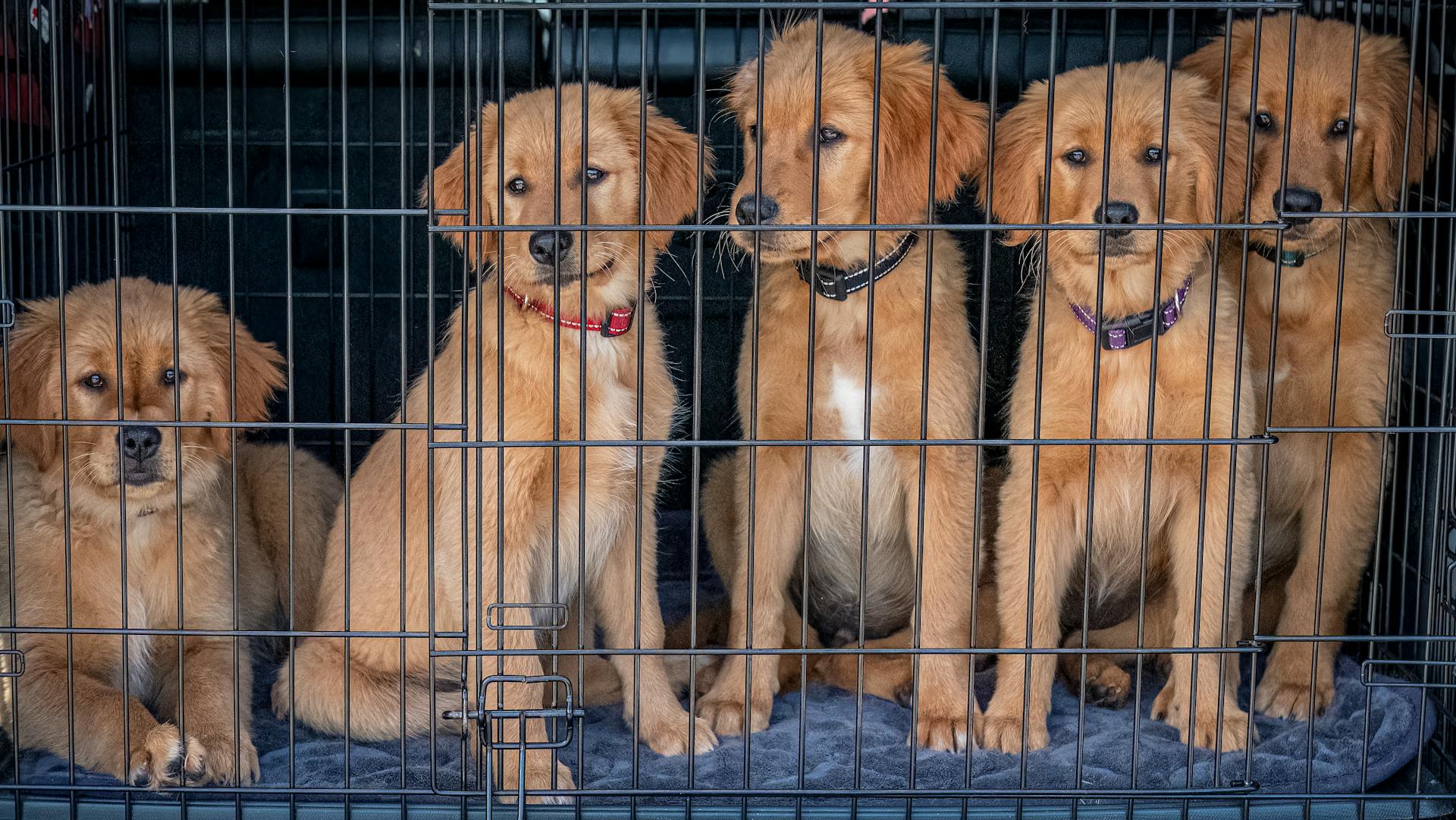
It's every horse owner's worst nightmare: you've found the perfect horse, you've fallen in love, and you've spent weeks getting to know each other. Then, the day of the pre-purchase exam arrives. The horse fails the vet check. Now what?
If your horse has failed a pre-purchase veterinary exam, it can be a devastating blow. You may feel like you've lost the horse of your dreams. But all is not lost. There are steps you can take to try to salvage the situation.
First, take a deep breath and try to remain calm. It is important to remember that a failed vet check does not mean that your horse is automatically doomed. There may be reasons why the horse failed the exam that are entirely fixable.
Next, find out why your horse failed the exam. This is important information that will help you determine your next course of action. There are many reasons why a horse might fail a pre-purchase exam, ranging from relatively minor issues to more serious health problems.
Once you know why your horse failed the exam, you can start to make a plan. If the reason for the failed exam is something minor, like a slightly elevated heart rate, you may be able to negotiate with the seller to have the price of the horse lowered to reflect the risk.
If the reason for the failed exam is more serious, like a cardiac condition, you may need to walk away from the horse altogether. It is important to remember that you are not obligated to purchase a horse just because you have started the process. If you have any doubts about the horse's health, it is best to err on the side of caution and walk away.
No matter what the reason for the failed exam, it is important to take your time and make sure you are making the best decision for you and your horse. Sometimes, a failed vet check can be a blessing in disguise. It may mean that you find an even better horse that is a perfect match for you.
Discover more: Perfect Horse
What do you do if your horse fails a vetting?
If your horse fails a vetting, the first thing you should do is call the attending veterinarian to discuss the findings and to develop a treatment plan. If the horse is lame, you may need to have the vet out to do a more thorough examination. Failure to pass a vetting does not necessarily mean that the horse is not sound, but it is important to get a second opinion from a qualified veterinarian to be sure.
The most important thing you can do if your horse fails a vetting is to stay calm and work with your veterinarian to develop a treatment plan that is best for your horse.
What are the consequences of a horse failing a vetting?
A horse failing a vetting is a serious matter with potentially disastrous consequences. If a horse fails a vetting, it means that the animal has not met the minimum standards for health and fitness required by the purchasing party. This can have a number of serious implications for the horse, including being returned to the seller, being euthanized, or being re-homed.
The most immediate consequence of a horse failing a vetting is that the purchasing party has the right to void the sale and return the horse to the seller. In some cases, the seller may be willing to refund the purchase price, but this is not always the case. In other cases, the seller may require the buyer to pay for any veterinary treatment that is required as a result of the horse failing the vetting.
If the horse is not returned to the seller, the next most likely outcome is that the horse will be euthanized. This is often done because it is not financially viable to provide the necessary care for a horse that fails a vetting. In some cases, the horse may be euthanized immediately after the vetting, while in other cases the horse may be kept alive long enough for the new owner to make the decision.
The final outcome for a horse that fails a vetting is that it may be re-homed. This is often done by rescues or sanctuaries who are willing to take on the responsibility of caring for a horse that has not met the minimum standards for health and fitness.
No matter what the outcome is for a horse that fails a vetting, it is a very serious matter with potentially devastating consequences. It is important to be well-informed about the risks involved in purchasing a horse, and to make sure that any horse that is purchased is thoroughly vetted by a reputable veterinarian.
How do you prepare a horse for a vetting?
A horse's vetting is an important health check that is performed by a qualified equine veterinarian. It is a thorough physical examination of the horse, including a detailed assessment of the horse's health and soundness. The horse's vaccinations and health history will also be checked.
The horse should be clean and free of mud, sweat and other debris before the vet arrives. The horse's coat should be brushed and the mane and tail should be combed out. The horse's hooves should be clean and the nails should be trimmed.
The horse should be brought into the vet's examination room and placed on a raised platform or in a stall. The vet will then start the examination by checking the horse's eyes, ears, nose and mouth. The vet will then feel the horse's limbs and body for any swellings or abnormalities. Next, the vet will use a stethoscope to listen to the horse's heart and lungs.
After the physical examination is complete, the vet will discuss the findings with the horse's owner. If the vet finds any problems, they will discuss the best course of treatment. The horse's owner will then decide whether or not to proceed with the recommended treatment.
Recommended read: What Is Zorro's Horse's Name?
What do you need to know about a horse's medical history before a vetting?
A horse's medical history is an important factor to consider when having the animal vetted. This history can provide information on the horse's overall health, any previous injuries or illnesses, and any medications or treatments the horse has received. This information can help the vet to make informed decisions about the best course of treatment for the horse.
The first thing to consider when looking at a horse's medical history is its age. A horse's age can influence its overall health and risk of developing certain conditions. For example, younger horses are more likely to have problems with their joints and bones, while older horses are more at risk for developing arthritis or heart conditions.
Next, take a look at the horse's weight. An overweight horse is more likely to suffer from health problems such as laminitis, while an underweight horse may have a weakened immune system and be more susceptible to diseases.
The next thing to consider is the horse's diet. A horse that is fed a diet high in sugar and carbohydrates is more likely to develop laminitis, while a horse that is fed a diet low in nutrients may be more susceptible to diseases.
Finally, consider the horse's environment. If the horse lives in a dirty or crowded environment, it is more likely to suffer from respiratory problems or skin diseases. If the horse lives in a dry or dusty environment, it is more likely to develop respiratory problems or allergies.
You might enjoy: How to Get a Horse's Attention?
What do you do if a horse is lame after a vetting?
If a horse is lame after a vetting, the first thing to do is call the vet. They will likely need to come out and check the horse to see what is going on. If the horse is in pain, they may need to be put on pain medication. If the vet is unavailable, the next best thing to do is get in touch with a qualified equine massage therapist. They will be able to help assess the situation and work on releasing any muscle tension that may be contributing to the lameness.
On a similar theme: Vet Wrap
What do you do if a horse has a reaction to the vetting process?
If a horse has a reaction to the vetting process, it is important to seek professional help in order to ensure the safety of both the horse and the people handling it. There are a few different ways to handle a horse that is having a reaction to the vetting process. The first is to try and calm the horse down. This can be done by speaking in a soft, soothing voice and stroking the horse's neck. If the horse is still agitated, the next step is to use a twitch. This is a device that is placed on the horse's upper lip and tightened in order to help the horse focus on something else and calm down. If the horse is still having a difficult time, the next step is to use a tranquilizer. This should only be done if the horse is in danger of harming itself or others. Once the horse has been sedated, the vet can then proceed with the examination.
Expand your knowledge: What Is a Tie down Used for on a Horse?
How do you know if a horse is healthy enough to pass a vetting?
A horse's health is vital to its performance, both in terms of racing and in other athletic endeavors. A horse that is not healthy enough to pass a vetting is likely to have problems with its racing career, and may even be forced to retire early. There are a number of things that must be considered when determining if a horse is healthy enough to pass a vetting.
The first thing that must be considered is the horse's age. A younger horse is much more likely to be healthy enough to pass a vetting than an older horse. The second thing that must be considered is the horse's recent medical history. A horse that has had a history of injuries or illnesses is much less likely to be healthy enough to pass a vetting than a horse that has been healthy and free of injuries or illnesses.
The third thing that must be considered is the horse's diet. A horse that is well-nourished and has a balanced diet is much more likely to be healthy enough to pass a vetting than a horse that is not well-nourished or has an unbalanced diet. The fourth thing that must be considered is the horse's exercise regime. A horse that is given a proper amount of exercise is much more likely to be healthy enough to pass a vetting than a horse that is not given enough exercise.
The fifth and final thing that must be considered is the horse's overall health and condition. A horse that is in good health and condition is much more likely to be healthy enough to pass a vetting than a horse that is not in good health or condition.
In conclusion, there are a number of things that must be considered when determining if a horse is healthy enough to pass a vetting. The age of the horse, the horse's recent medical history, the horse's diet, the horse's exercise regime, and the horse's overall health and condition are all important factors in determining the horse's ability to pass a vetting.
What are the signs that a horse is not healthy enough to pass a vetting?
There are a number of signs that a horse is not healthy enough to pass a vetting. Some of the more common signs include:
*weight loss *poor body condition *weakness *lethargy *recurrent infections *increased heart rate *respiratory distress
If a horse is showing any of these signs, it is important to have it examined by a veterinarian as soon as possible.
What do you do if you are not sure if your horse will pass a vetting?
There are a few things that you can do if you are not sure if your horse will pass a vetting. The first thing that you can do is to make sure that you have all of the necessary paperwork in order. This includes things like a negative Coggins test, proof of vaccinations, and a health certificate. If you have any concerns, you can also ask your veterinarian to look at your horse before the vetting.
The second thing that you can do is to familiarize yourself with the process of a vetting. This way, you will know what to expect and you will be able to better prepare your horse. It is also a good idea to talk to other people who have gone through the vetting process with their horses. This can give you a better idea of what to expect and how to best prepare your horse.
The third thing that you can do is to make sure that you are as prepared as possible for the vetting. This means that you should have your horse's stall clean and neat and you should have all of the required paperwork with you. You should also have a groom with you to help with anything that you may need. Finally, it is always a good idea to have a backup plan in case your horse does not pass the vetting. This could include finding another horse to ride or having someone else transport your horse for you.
Frequently Asked Questions
What is a pre-purchase examination for a horse?
A pre-purchase examination is typically carried out before a new owner purchases a horse, to ensure that it is fit for purpose and healthy. It’s also a chance to identify any potential issues that may affect the horse in the short term, as well as in the future.
What happens if a horse fails the vet?
If a horse fails the vet, it usually means there is something wrong with its health. If it‘s an equine illness, the vet will usually give you a pre-purchase certificate so that you can consult your insurer as soon as possible.
What causes a horse to fail a vetting?
A horse that fails a vetting may have any of a number of underlying health issues, many of which are difficult to diagnose and can be fatal if untreated. These include: Sarcoidosis Lymphoid hyperplasia (a disorder of the lymphatic system) Liver disease (hepatitis, cirrhosis, portal hypertension) Injury (trauma, surgery, neoplasia)
Why is it important to discuss the findings of a vetting?
Vetting a horse is an important step in ensuring its safety and welfare. It can provide us with the information we need to make decisions about the horse's care and future. By discussing the findings of the vetting, we can understand any reasons why a horse may have failed and decide what steps need to be taken to ensure its safety and welfare.
When does a horse go lame after lunging?
Often, horses go lame after lunging when they suddenly experience greater pain in the hindquarters.
Sources
- https://www.horsequest.co.uk/2/horses-for-sale/1/allrounders/356/allrounders-under-3000
- https://8kun.top/qresearch/res/16732952.html
- https://dicionariodopetroleo.com.br/glossario/
- https://thestandard.org.nz/what-to-do-with-gaurav-sharma/
- https://talkingpointsmemo.com/news
- https://talkingpointsmemo.com/muckraker
- https://acecomments.mu.nu/
- https://abcnews.go.com/politics
- https://abcnews.go.com/international
- https://acecomments.mu.nu/
- https://www.manytearsrescue.org/adoptionprocedures.php
- https://www.gov.uk/government/organisations/disclosure-and-barring-service
- https://essayfountain.com/
- https://www.mantelligence.com/questions-to-ask/
- https://developer.apple.com/app-store/review/guidelines/
- https://www.horsequest.co.uk/search
- https://www.legitgamblingsites.com/
- https://www.nytimes.com/wirecutter/reviews/mosquito-control-gear/
- https://www.tripadvisor.com/Attraction_Review-g50207-d137421-Reviews-Cleveland_Metroparks_Zoo-Cleveland_Ohio.html
Featured Images: pexels.com


